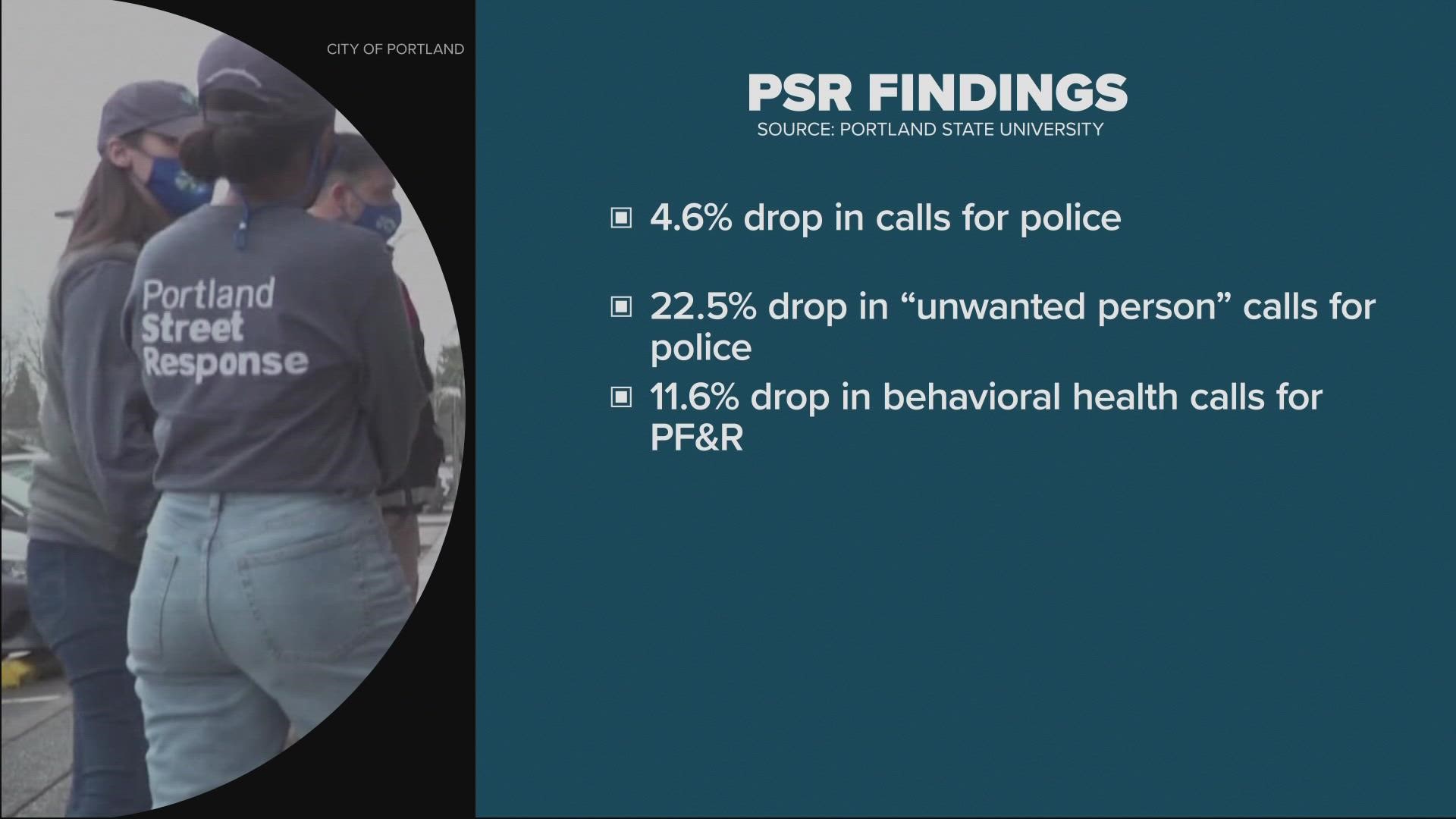PORTLAND, Ore. — The U.S. Department of Justice isn’t going to stand in the way of efforts to allow Portland Street Response (PSR) to begin responding to suicide calls, according to testimony at a Tuesday meeting of the Portland Committee on Community-Engaged Policing.
PSR dispatches teams of paramedics and mental health experts – rather than police – to non-violent calls involving social service or mental health needs like housing and drug counseling.
City officials appear to be moving toward a citywide expansion of the 8-month-old pilot program, but PSR’s inability to field suicide calls has been repeatedly cited as a lingering concern in recent weeks.
Researchers at Portland State University contracted by the city to study the launch of the program reported earlier this month that PSR had only responded to an average of three or four calls a day.
Dr. Greg Townley, director of research for the Homelessness Research & Action Collaborative at PSU, told the city council that one of the limitations behind the low response rate was that PSR can’t take suicide calls. PSR program manager Robyn Burek noted the same limitation in a council work session last month.
The limitation also came up in the most recent report from the Compliance Officer and Community Liaison, the consultant team tasked with independently assessing the Portland Police Bureau’s compliance with a 2014 settlement agreement with the U.S. Department of Justice regarding police use of force in encounters with people with mental illness.
The report included a list of recommendations to improve PSR prior to a citywide expansion, one of which was that the city “not limit the range of mental health call types which qualify to receive a PSR response.”
The Oregonian/OregonLive reported this summer that Burek said she hoped the program would be able to respond to suicide calls eventually, but that city officials believed the 2014 settlement required police to respond to all suicide calls.
The Compliance Officer and Community Liaison report stated that the team disagreed with that assessment and “would not object to expanding the PSR response options for suicide calls specifically or other mental health crisis calls broadly.”
Jared Hager, assistant U.S. attorney for the Department of Justice, also disagreed at Tuesday’s meeting, according to multiple reports, and told local officials that the settlement agreement does not require the city to dispatch an armed police response to suicide calls.
That statement clears up the issue as far as any DOJ-related limits on the ability to take suicide calls, according to PSR communications officer Caryn Brooks, but there’s an additional hurtle that needs to be cleared.
During the creation of PSR, the city negotiated a 1-year agreement with the police union which included a specific list of the types of calls that the new agency would be able to respond to – and it didn’t include suicide calls.
“Any additions to that need to be approved by the union,” she said.
There will also be some logistical issues to work out if the Portland Police Association agrees to the change, she said, such as how the Bureau of Emergency Communication would dispatch PSR in suicide cases and which types of suicide calls would be transferred.
PSR’s trial run was funded by $4.8 million, most of which came from cuts to the Portland Police Bureau in 2020. The program’s initial service area was limited to the Lents neighborhood in Southeast Portland when it launched in February, but it expanded after about two months to include parts of the adjacent Powellhurst-Gilbert, Pleasant Valley and Montavilla neighborhoods.
The PSU researcher team formally recommended earlier this month that the program be expanded citywide. The team reported that the program had decreased both police and fire department responses to calls for issues such as suspicious persons, behavioral health and illegal burns, and that clients had rated the program highly.
Commissioner Jo Ann Hardesty, who has championed PSR, told KGW earlier this month that she would introduce a $1 million expansion package for the program during the city’s regular fall adjustment process, and would ask the council to formally commit to a citywide expansion next March. Commissioners Dan Ryan, Carmen Rubio and Mingus Mapps all told KGW they supported an expansion.

